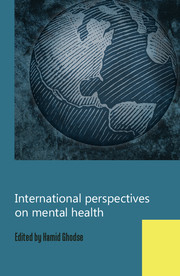Book contents
- Frontmatter
- Contents
- List of contributors
- Preface
- Africa
- Asia
- Australasia
- Europe
- Albania
- Austria
- Republic of Belarus
- Belgium
- Bosnia and Herzegovina
- Croatia
- Czech Republic
- Estonia
- Finland
- France
- Germany
- Greece
- Hungary
- Ireland
- Italy
- Lithuania
- Malta
- The Netherlands
- Norway
- Poland
- Portugal
- Romania
- Russian Federation
- Serbia
- Slovak Republic
- Slovenia
- Spain
- Sweden
- Switzerland
- Ukraine
- United Kingdom
- North America
- South America
- Index
Bosnia and Herzegovina
from Europe
Published online by Cambridge University Press: 02 January 2018
- Frontmatter
- Contents
- List of contributors
- Preface
- Africa
- Asia
- Australasia
- Europe
- Albania
- Austria
- Republic of Belarus
- Belgium
- Bosnia and Herzegovina
- Croatia
- Czech Republic
- Estonia
- Finland
- France
- Germany
- Greece
- Hungary
- Ireland
- Italy
- Lithuania
- Malta
- The Netherlands
- Norway
- Poland
- Portugal
- Romania
- Russian Federation
- Serbia
- Slovak Republic
- Slovenia
- Spain
- Sweden
- Switzerland
- Ukraine
- United Kingdom
- North America
- South America
- Index
Summary
Bosnia and Herzegovina (BH) is located on the western part of the Balkan Peninsula. It has an area of 51 210 km2 and a population of 3 972 000. According to the Dayton Agreement of November 1995, which ended the 1992–95 war, BH comprises two ‘entities’ – the Federation of Bosnia and Herzegovina (FBH) and the Republic of Srpska (RS) – and the District of Brcko. The administrative arrangements for the management and financing of mental health services reflect this. The FBH, with 2 325 018 residents, is a federation of 10 cantons, which have equal rights and responsibilities. The RS has 1 487 785 residents and, in contrast, a centralised administration. Brcko District has just under 80 000 residents.
Mental health policy and legislation
Healthcare systems in BH are regulated basically by the entities’ different laws on healthcare and on health insurance. Each entity and Brcko District is responsible for the financing, management, organisation and provision of healthcare. The health administration is centralised in RS, through the Ministry of Health and Social Welfare, but in FBH is decentralised – each of the 10 cantonal administrations has responsibility for healthcare through its own ministries. The central Ministry of Health of the FBH, located in Sarajevo, coordinates cantonal health administrations at a federal level. The District of Brcko provides primary and secondary care to its citizens. The mental health policies and national programmes for mental health were created in 1999 and adopted in 2005. A law on the protection of persons with mental disorders was adopted in 2001 and 2002 in FBH (Official Gazette of BH, Nos 37/01 and 40/02), and in 2004 in RS (Official Gazette of RS, No. 46/04). These laws define the rights of people and regulates the procedure for voluntary or involuntary admission to a psychiatric hospital.
Mental health service delivery
There are no private mental health institutions. Psychiatric services are available for all citizens, paid from a special national fund for healthcare, financed by mandatory health insurance. The reform of mental health services began in 1995. The focus has been on care in the community, limiting the use of psychiatric hospital beds, establishing a network of community mental health centres (CMHCs), and developing other services in the community, a multidisciplinary approach and teamwork, as well as cooperation between sectors.
- Type
- Chapter
- Information
- International Perspectives on Mental Health , pp. 283 - 287Publisher: Royal College of PsychiatristsPrint publication year: 2011



